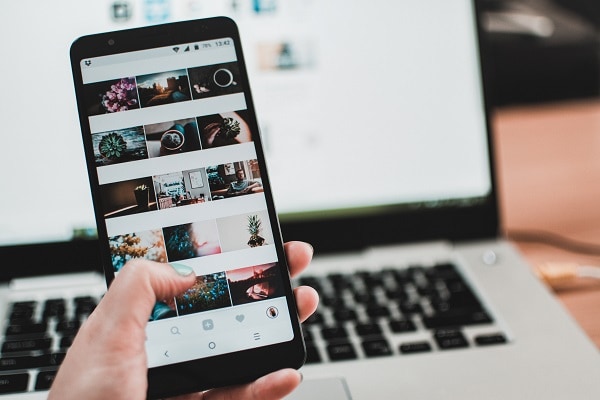How To Use Social Media Wisely and Mindfully
As I was scrolling the web, I recently read an interesting study by the University of British Columbia on social media.
It found that our level of happiness using Facebook, Instagram, Twitter and other platforms is based on how we use it.
It’s a really interesting concept, because we usually think mostly about finding ways to use our social media less.
But maybe we should also think about how our profiles and accounts can be tools for our happiness. It’s with that thought, I wanted to explore the idea of how to use social media wisely and mindfully.
With anything we spend most of our time, we should try to find a way to make it as mentally and emotionally rewarding to us as possible.
We also need to be aware of what ways to avoid using these tools so that the experience is less of a negative for us.
Here are a few ideas that can help us turn our social media use into a net positive in our lives.
Related: How To Spend Less Time On Social Media in 2022

1. Don’t passively scroll
The biggest problem the study emphasized on why using social platforms can make us unhappy is passively scrolling.
Professor Derrick Wirtz, who conducted this research, found that when people passively scroll they fall into the trap of social comparison.
What we often forget is that people post updates and pictures in a selective manner that generally portrays them positively.
It’s in seeing that selective positive portrayal, we make the false assumption that these people are not experiencing as much negative feelings as we are
As a result, we make the false conclusion that because our life has both positive and negative emotions, our life must not be as good.
So, we have to be mindful and catch ourselves when we’re just mindlessly scrolling through our feeds. It might be helpful to make the act of scrolling take more work.
If you access your online platforms through your laptop, instead of using your mouse to go down the page, press the down button on your keyboard instead. And don’t hold it down.
With smartphones, it might be a little bit trickier given how easy it is to just swipe your screen.
Unless you downgrade your phone, you’ll have to be more conscious about slowly viewing one thing at a time.
When we’re able to consume these online platforms slower, we can be more deliberate about how we use them.
2. Interact with the post and images you see
It’s important that we don’t just take in what we’re seeing. Instead, we should take time to actually comment on what we’re seeing.
You might discover from the person’s response that things weren’t all as perfect as they looked. It also can make us feel good to give out compliments to people’s photos or updates.
As I touched on a bit in my article on selflenssness, being good to others has been proven to increase happiness.
3. Spend more time chatting with people
Another key thing the research noted was that people often don’t use social media to interact with anyone.
That’s really crazy to think about. The main purpose that these online platforms were intended for, people rarely even use it that way.
It seems best that our time on any social network should primarily be spent chatting with our loved ones.
If none of the people you enjoy communicating with are online, then maybe just get off and check back later.
Make sure that the friends and connections you do have online are people you actually talk to often.
I was guilty of this when I was on Facebook regularly. I had lots of people I was “friends” with on there, but I only talked to maybe two or three people.
When those people weren’t there, then I just scrolled through people’s selective positive (and negative) updates, didn’t interact, and felt down about my life.
You can help yourself avoid this mistake by making the majority of your friends list your close family and friends.
One other thing the study noted is that people who had more in-person interactions experienced more positive feelings than those who used social media often.
The professor recommends using our online networks to set up meetings with our loved ones. Remember that everything in your life can be a tool to get more of what you want.
It’s our job to make conscious choices to use these things to our benefit. Maybe the next time you’re online, see if you can arrange a lunch date or a get together with someone.
I know in these times we’re a little bit more limited in how we can do that. But if it’s possible to do safely, try to schedule something.
It was really enlightening to read this new research and ponder on this subject. I hope this inspires all of you to be even more intentional about how you use your favorite social networks.
Great post, and so important to help keep things in perspective at a time like this!